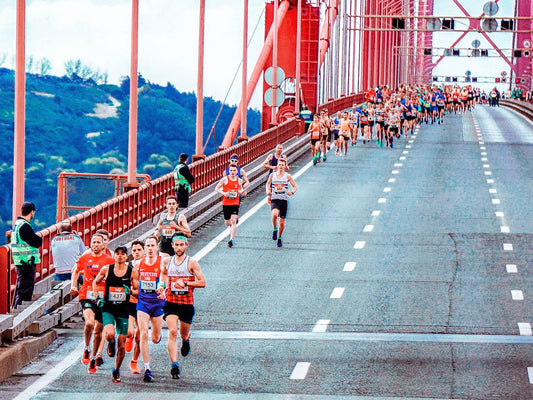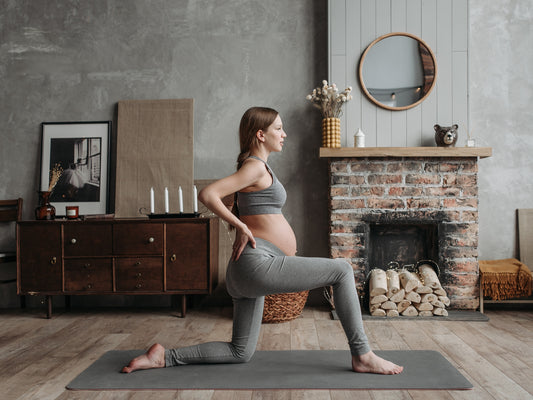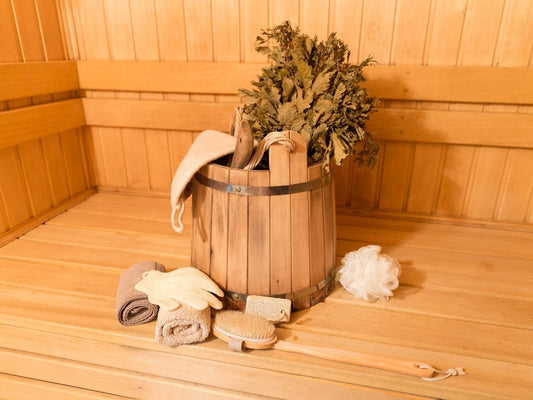We all know that hydration and exercise go hand in hand. But what’s going on inside our bodies, does hydration actually affect our athletic performance, and is hydration the key to recovery from strenuous exercise? We looked at the latest research to find out what’s really going on.
Why does exercise lead to dehydration?
During exercise your body works at a higher than normal metabolic rate. Your metabolic rate is your energy expenditure, and with exercise, your energy expenditure goes up. This produces heat [1]. Your body needs to deal with this heat, so that your body temperature stays within a healthy range. This is where hydration comes in. Sweating is the #1 way for your body to lose heat.

If you are dehydrated your body is less able to cope with heat: with a lower water level, you can’t sweat enough to get rid of the heat your body is producing. You might suffer dizziness, fainting, or heat stress, or have heatstroke [2].
What are the results of dehydration on the human body?
As described above, thermoregulation is affected by dehydration. Your body has a reduced ability to cope with high and low temperatures [3], and raised temperatures may lead to dizziness and fainting, due to a lack of blood flow to the brain [2]. Dehydration also affects countless processes all over the body. Feeling fatigued is one of the symptoms most commonly associated with dehydration [4]. It can also prevent your heart from working as efficiently as it can, and can reduce the volume of your blood, meaning that less oxygen and glucose are delivered to your muscles, and waste-products are transported away more slowly [5].
What effect does dehydration have on athletic performance?
Research has shown that dehydration of 1-2% of body mass (eg. a 150 pound person lacking 24 ounces of water) has no impact on athletic performance up to 90 minutes. But when exercise extends beyond 90 minutes, performance is hindered by the dehydration [6]. It has also been shown that dehydration induced by exercise (up to 4% of body weight) does not affect performance in outdoor cycling time-trials, but rather, it is the intensity and duration of exercise that has the real effect [7].
Having said all this, there is research that shows that inadequate nutrition is an important cause of poor performance in athletic competitions, and that hydration is the most important element of nutrition for sports performance [5]. It has also been shown that if you are dehydrated when you start exercising, you are likely to suffer from reduced performance [6].
When is the best time to hydrate during exercise?
Before, during, after? The answer is all three.
If you start dehydrated, your sports performance will be affected, and you’ll put yourself at risk of other problems caused by too little fluid and too much heat [6].

Drinking a little throughout your workout can keep your fluid levels topped up, and mean that you can exercise for longer without becoming dehydrated, and therefore, exercise for longer before your performance is reduced by dehydration and heat production.
The crucial time to get your hydration back is immediately after you stop exercising. Recovery has been shown to be best in athletes who replenish their body with water and fuel as soon as they have finished exercising. This hydration is far more effective in people that drink electrolytes in their water, to replace the salts lost through sweat, as your blood volume and body process are dependent on fluids of the right salt concentration [5]. Check out our blog to learn more about why you need more than just water to hydrate well.
A top tip is to weigh yourself before and after strenuous exercise. You shouldn’t lose more than 1-2% of your body weight when you exercise—if you do, it’s a good indicator that you’ve lost too much water and not replaced it, and therefore are dehydrated! [7]
What about leg cramps–is dehydration related to these?
You might have seen our blog post specifically looking at leg cramps and dehydration, but research released in March 2019 has shed some new light on the equation.
The researchers thought that drinking water straight after becoming dehydrated from exercise in the heat would increase the chances of developing leg cramps. They also thought that if you drink an oral rehydration solution (ORS)—a careful balance of water, sugar, and salty-electrolytes—you wouldn’t be more likely to get leg cramps [8]. The experiment proved their hypothesis: if you drink water immediately after exercise-induced dehydration, you are more likely to get leg cramps. However, this effect was reduced when an ORS was drunk instead.
Now, this was a pretty small trial, and is very new data. We don’t know what strength of ORS will work best to mitigate leg cramps, in both intensity and frequency. We also don’t know when an ORS works best, as this study is focused on cramps occurring after exercise, and not during. But all in all, this fits in with the theories that leg cramps are connected to dehydration-induced salt imbalances, and that drinking water with plenty of electrolytes is an important factor in avoiding them!
I do a lot of exercise–how can I keep hydrated?
For some people, there isn’t much time to recover between bouts of exercise. We’ve said that it’s so important not to start exercising dehydrated, but what about when you’re undertaking further exercise shortly after? Is it possible to keep your body’s hydration in check?
 In 2017, Sports Medicine published an article looking at just that [9]. They looked at the data from 64 different scientific trials and found that fluid intake has a positive effect on your subsequent performance in later activities. The timing of this fluid intake doesn’t have much of an effect; simply rehydrating at some point before your next activity will help. Even if you can’t drink enough to completely rehydrate, your body can make use of any fluid you give it, and even sub-optimal fluid intake was shown to be better than no fluid intake. This is particularly important under heat stress conditions.
In 2017, Sports Medicine published an article looking at just that [9]. They looked at the data from 64 different scientific trials and found that fluid intake has a positive effect on your subsequent performance in later activities. The timing of this fluid intake doesn’t have much of an effect; simply rehydrating at some point before your next activity will help. Even if you can’t drink enough to completely rehydrate, your body can make use of any fluid you give it, and even sub-optimal fluid intake was shown to be better than no fluid intake. This is particularly important under heat stress conditions.
Maybe this new research has told you what you already know—that you should keep hydrated when you’re exercising. However, this paper does remind us that every little bit helps. You’ll really help your performance by hydrating throughout and in between exercise. If you don’t have time to hydrate between exercises (or can’t stomach that much water at once!), do what you can to give yourself the best performance, one sip at a time. And make sure you hydrate properly afterwards as well!
Can you hydrate too much?
At Hydrant we love hydration because of the great effects it has on you and your body. Just keep in mind that it’s possible to over-hydrate, particularly when you are very thirsty after intense exercise. When you over-hydrate, your body has a hard time processing all the fluid you’ve ingested. If you don’t have enough electrolytes with your water to replace all the salts you’ve lost, (so are drinking solutions that are much less concentrated than your body requires), you’re more likely to put pressure on your kidneys [2]. If you make sure to ingest enough salts and water, your body will more easily process any excess water.
This is yet another great reason to add another packet of Hydrant to your water. It tastes great and contains just the right balance of electrolytes to hydrate you properly.
Even more than that, some research suggests that drinking water supplemented with electrolytes, like Hydrant, doesn’t just help hydrate you, but may actually improve your sport performance more so than by drinking water alone [6]. Hydrant is also a great example of an electrolyte-rich solution you could drink to reduce your chance of leg cramps (see above!) So grab a water bottle and some Hydrant, and go and deliver your best performance!
Writer: Ailsa McKinlay
Editor: Elizabeth Trelstad, www.hellobeaker.com
















